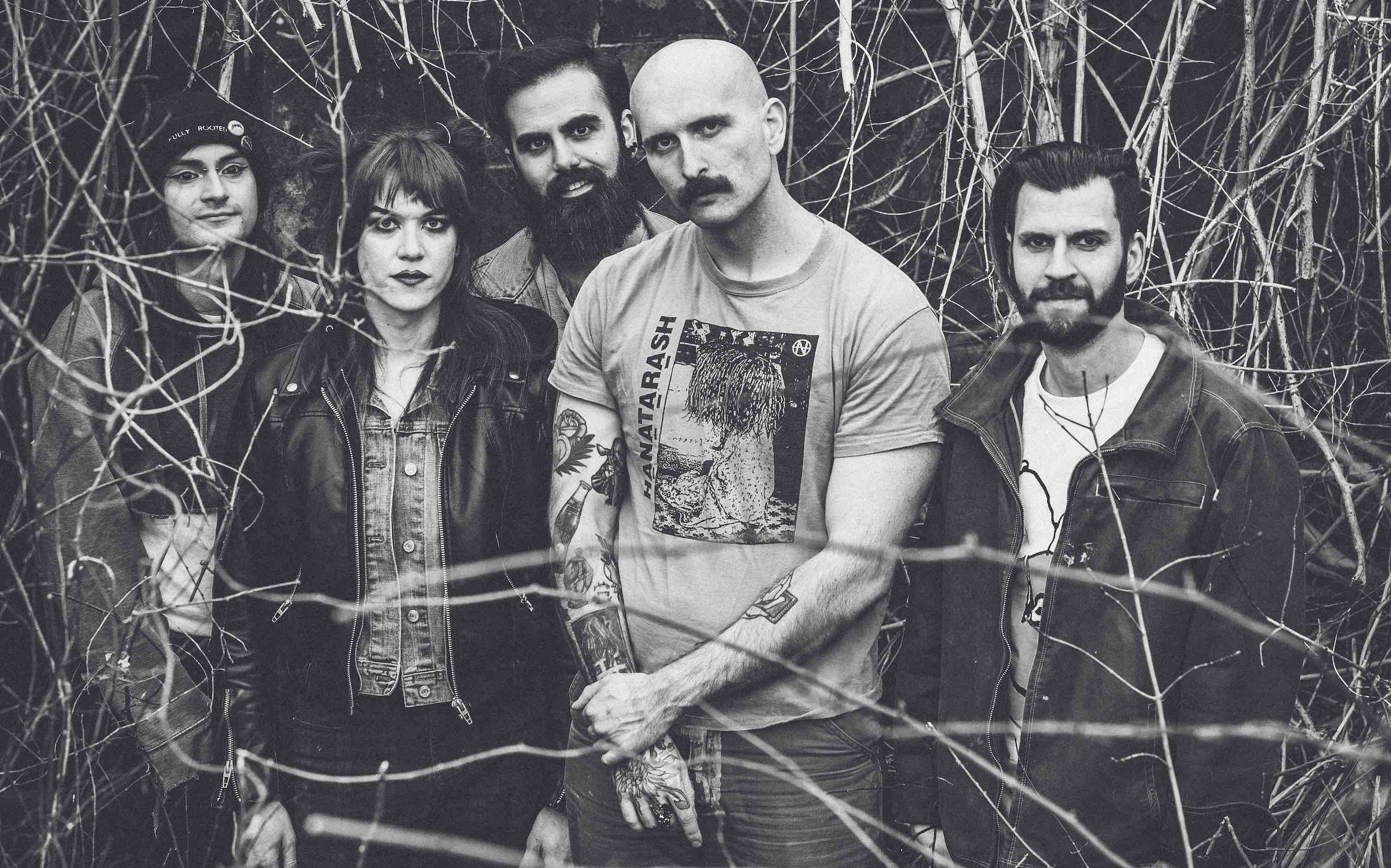Pascal Laugier’s 2008 sadistic-horror film Martyrs is the pinnacle of movies you have to be discerning about when recommending to people. On the one hand, it’s the type of superficial shock value that the cultish New French Extremity movement quickly came to be known for in (though Laugier denies its association with this categorization), while on the other it’s a deeply profound existential statement on suffering—specifically survivor’s guilt—and victimhood in a world that feels increasingly populated by both.
In a sense, then, it’s the perfect cinematic parallel for the music of Providence-based screamo group Dreamwell, who share that surface-level abrasiveness and deeply prodding sense of self-reflection that would be hard to stomach if it didn’t strike a chord with such a broad listener base. This remains the case on the group’s forthcoming debut for Prosthetic Records, In My Saddest Dreams, I Am Beside You, which twists the heavy-rock genre Rubik’s cube to introduce more confrontational metalcore sounds into the equation while leaving some of the more reflective emo influence of 2021’s Modern Grotesque behind.
It was the band’s songwriter K.Z. Staska who initially made the connection between Dreamwell and Martyrs, the film being one of eight non-musical influences he cites as having inspired the band’s latest chapter. Before IMSDIABY drops tomorrow, you can read through the rest of them—ranging from the exhausted narrative writings of Sartre to the surrealist anime world of FLCL—in his writeups below.
Tarot/Astrology
There’s a ton of tarot and astrology imagery on the album. I don’t really believe in either of them, but I do find them undeniably interesting and there have been several moments in my life—particularly during the writing of this album—that I turned to them for some sense of comfort. I think tarot in particular is interesting because even if you don’t believe that the cards are guided by some kind of oracle or spirit, the symbolism of the cards were still intentionally crafted by spiritual and philosophical human beings to mean something. Just shuffling and drawing some cards and trying to apply the meaning of the symbols in combination with each other to whatever question you’re asking can, if nothing else, force you to consider things from a perspective you never would’ve had on your own.
Alone with You (2021)
I saw this movie at a midnight screening at the Coolidge Corner Theater in Brookline, Massachusetts after seeing Knoll and Frail Body at O’Brien’s Pub in Allston. I was particularly down bad that night. The movie shows a woman caught in this paranoia cycle during a moment of perceived abandonment, and these unhinged hallucinations she starts to have as she’s trapped in her apartment. It felt a little too on-the-nose considering everything I was feeling and writing at the time. It hit so close to home that the tension and panic I started to feel almost made me leave the theater.
Nausea by Jean-Paul Sartre
Another narrative about a character whose mental state deteriorates as he’s only able to see the world around him through insane, bleak hallucinations. Of course as an existentialist text, there’s the underlying theme of “The world around us has no inherent meaning and is shaped by however we choose to understand it,” and I think that applies to what I’m writing about on this album, too. If I’m seeing everything as catastrophic and dying because of the distortions of my mental illness, then I’ll make them so.
Martyrs (2008)
The pinnacle film, in my opinion, of the New French Extremity (High Tension sucks, Inside is pretty good). I watch this movie once a year because it’s one of the only films that’s ever truly hurt me. It’s bleak, it’s hopeless, it’s unforgiving. It’s a movie about living with regret. It’s about giving up and resigning yourself to suffering. It’s a movie that Pascal Laugier wrote while being crushed under the weight of emotional suffering. “It Will Hurt, and You Won’t Get to Be Surprised” is my Martyrs.
I Have No Mouth, and I Must Scream by Harlan Ellison
Again, it’s really the bleak and hopeless atmosphere that influenced me here, but also the commitment to just absolutely evil lines of prose. The narrator is almost as bitter and miserable as the antagonist. I like that it’s almost hard to empathize with him, even though you have no choice but to also hate the opposing force. I think I do this on the album a little bit, too. I’m writing about emotional situations no one envies, but I’m also writing from such a bitter and angry place. There are no non-aggressors.
Bloodborne
I was just playing a lot of Bloodborne when we were writing this album. It’s another example of atmosphere. But there’s also the element of hidden realities lurking beneath the veil of your perception, and then of course the question of whether or not these are the actual realities of the world or if you’re being fully consumed by your own madness. Thinking of the narrator character of IMSDIABY as Micolash wouldn’t be totally inappropriate.
FLCL
FLCL is just my comfort show, something I watch probably once a year when I’m truly just going through it. I’m definitely influenced by the absurdity of it, though, and the progression of Naota’s character. “You left without saying anything” defines the situation of what, like, half the songs on the album are about.
Possum (2008)
This is the most underrated horror movie, first of all. It’s just so good. Tense, unrelenting neurosis born of trauma as well as a character caught in this inescapable cycle as the source of all his woes just keeps coming back, no matter what he tries to do. Those elements definitely run parallel with my writing on the album. Please just watch Possum. It’s the one with the spider legs on the cover. It rocks.







